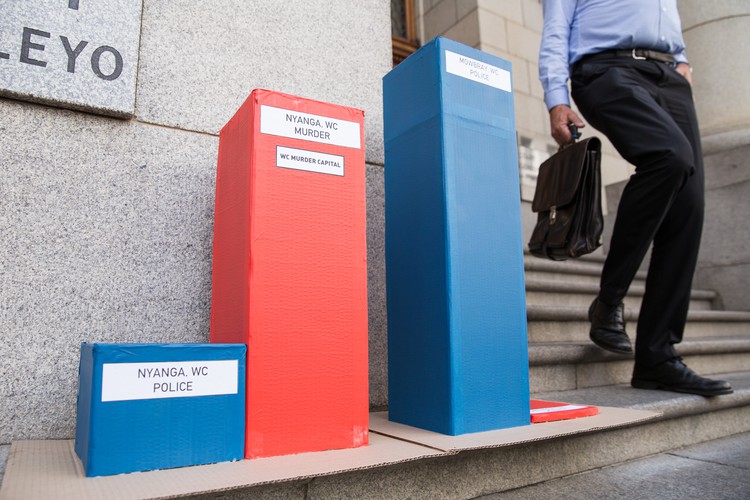Court hears black communities get inferior police services
Civil society organisations want a declaration that the allocation of officers in the Western Cape is discriminatory
An application by civil society organisations for an order to declare that the allocation of police resources in the Western Cape unfairly discriminates against black and poor people was heard in the Equality Court at the Western Cape High Court on Tuesday.
Activist groups led by the Social Justice Coalition have been waging a campaign for years for more equitable policing in the province. In March 2016, the SJC, Equal Education (EE) and the Nyanga Community Policing Forum (CPF) took the Minister of Police, the national and provincial police commissioners, and the Western Cape MEC for Community Safety to court.
The applicants argue that the current allocation of police resources is both irrational and discriminatory: More police officers are allocated to stations servicing wealthy suburban neighbourhoods with relatively low crime rates than to stations serving poor, mostly black communities with high crime rates.
Advocate for the applicants, Peter Hathorn, said, “The current police allocation in the Western Cape unfairly discriminates on grounds of race and poverty. Places that have a high rate of crime are starved in terms of police resources. Black communities are getting inferior police services.”
Hathorn told the court that this was one of the findings of the Khayelitsha Commission of Inquiry back in 2014. He also said that in the last 15 years there has been no substantial change to how police resources are allocated.
Advocate Ncumisa Mayosi, also representing the applicants, told the court that recommendation 7 of the Khayelitsha Commission of Inquiry had said the system for determining the allocation of police officers should be revised and more officers should urgently be re-allocated to Khayelitsha’s three stations – Lingelethu West, Harare and Khayelitsha police precincts.
Mayosi took the court through the Nyanga CPF’s evidence. The precinct was known as the country’s “murder capital” in 2015, and it was one of the worst-performing police stations. She also presented evidence from EE’s Ntuthuzo Ndzomo. He described how unsafe Khayelitsha was and that some cases when reported to the police were not even investigated.
Presiding over the case are Judge Nolwazi Boqwana and Judge MJ Dolamo.
Members of the SJC, EE and the Nyanga CPF picketed outside the court in support of the long awaited court case.
The case continues on Wednesday and Thursday.
Support independent journalism
Donate using Payfast

Don't miss out on the latest news
We respect your privacy, and promise we won't spam you.
Next: Property developers booted off Obz Civic Association
Previous: Treasury covering up grand-scale corruption at PRASA
© 2017 GroundUp. 
This article is licensed under a Creative Commons Attribution-NoDerivatives 4.0 International License.
You may republish this article, so long as you credit the authors and GroundUp, and do not change the text. Please include a link back to the original article.

